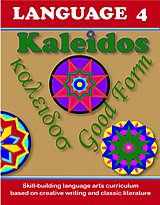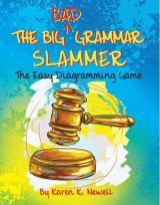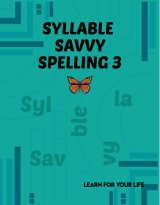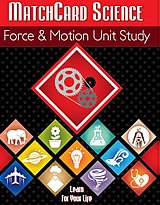Writing Rubrics
Writing rubrics help you evaluate your students' writing AND
guide them to improve their writing skills.
What's On This Page?
Our writing rubrics on this page include:- 9 Sample Writing Rubrics to Download
- Elementary Grades
- Middle School and High School
- How to Use Writing Rubrics
- Making Your Own Rubric
Links to other pages for free downloads of our sample writing rubrics are provided below.
Sample Writing Rubrics
Nine Printable Writing Rubricshttps:
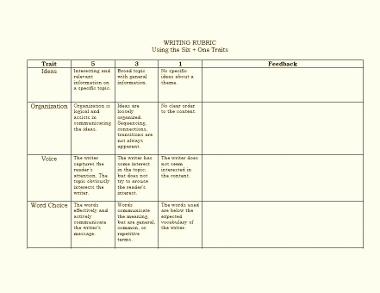
Elementary Writing Rubrics
We have provided 5 simple elementary writing rubrics for kindergarten through fifth grade.Our elementary writing rubrics include the following:
- Kindergarten Rubric
- First Grade Rubric
- Second Grade Rubric
- Third Grade Rubric
- Fourth Grade Rubric
- Fifth Grade Rubric
- 6+1 Traits Rubric
However, we don't want to neglect adding the more complex elements of writing. They will master these skills through repetition over time. Be patient and anticipate months of writing before these skills are easily incorporated.
Middle School and High School Essay Rubrics
Our essay rubrics for middle school and high school provide you with a variety of tools to evaluate your students' writing.As writing skills become more complex, evaluating them also becomes more complicated. We need to keep in mind the goal of the particular writing assignment, as well as the overall acquisition of writing skills. The article below explains how you can modify the rubric to meet your needs.
Our choice of rubrics for essays includes:
How to Use a Rubric To Evaluate Writing
There are three simple steps for using a writing rubric.Read and assess the paper
Evaluating the paper obviously starts with reading it. Read it first to get an overall comprehension of the students' work.Then you will re-read it several times. Each re-reading will allow you to assess one or two criteria on the rubric.
Highlight strong examples to provide positive reinforcement. Simultaneously, give the student specific examples of where their writing was weak in one area and how they can improve it.
Assign Points
As a whole, I use the following system:- 8 Points (C Grade for that criteria) The student showed a minimal (passing) understanding of the criteria and attempt to use it. There is room for improvement.
- 9 Points (B Grade for that criteria) The paper reflects a solid grasp of that criteria.
- 10 Points (A Grade for that criteria) You can point to several specific examples of the student excelling for this criteria.
- 7 Points (D Grade for that criteria) The paper is below the expected level for that criteria.
- 6 Points (F Grade for that criteria) The student fails to produce acceptable writing or comply with the assignment goals.
As noted above, it seldom is necessary to go below a grade of six for assignments that are turned in. However, if something is completely missing it may earn 0 points. For instance, a poorly put together bibliography of inappropriate resources would earn six points. If there was no bibliography, that would get zero points. Of course, we hope not to see 0's or 6's at all.
The basic rubric above also gives guidelines for the grading of mechanics. Basically, as a general rule of thumb I have used the following scale:
- 10 points - Less than one error per page. If a student has a six page report, and has five or less spelling errors, that is an A. On a three page report, he or she would need to have two or less errors.
- 9 points - Between one and two errors per page. For the six page paper, that would be between 6 and 11 errors for the entire report.
- 8 points - Two or more errors, but less than three errors per page.
- 7 points - Three or more errors per page, but less than four errors per page.
- 6 points - Four or more errors per page.
Important*** I do not recommend down-grading students for not correctly punctuating complex and compound sentences until the last years in high school. We want our students to write with sophisticated sentences. If they think they their grade will be reduced by mis-using commas, they tend to stick to the most basic and repetive sentences..
I recommend simply showing them the correct punctuation, and working on that skill later. Oh the other hand, if it is a skill you have taught several times and expect them to know, it would be appropriate to count that in the errors which reduce their grade.
Improve Their Writing
Depending on the assignment, you might have the student resubmit it strengthening any weak areas. Another strategy is to plan the NEXT writing assignment to improve areas of difficulty.Writing Lessons with a Twist
K through 2nd
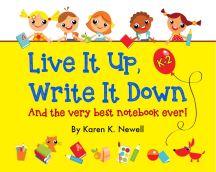
Live It Up, Write It Down Kindergarten through second grade students will get a bang out of this curriculum. First they do a hands-on activity; then they write about it.
Their thoughts turn into sentences; their sentences turn into a paragraph. One step at a time, a budding writer develops.
3rd to 8th Grade
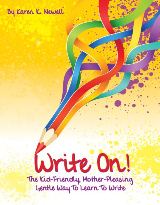
Write On: The Kid-Friendly Way to Write With a carefully crafted process, students start with simple sentences, turn their thoughts into paragraphs, develop their ideas into essays, then combine their skills to create a thesis.
In between structured reports, creative writing exercises stretch their imagination and build their writing style.
This unique program can be used with multi-level learning and fits in with most unit study curriculums. Written for average 3rd to 8th grade writers, some activities can be adapted for writers in different situations.
Creating Your Own Rubric
Read our step by step instructions for creating a rubric. More writing rubrics can be developed when you follow these simple steps:- Define the goal of the assignment.
- Determine the weight given to mechanics.
- Plan the criteria.
- Have your student read the criteria OUT LOUD.
- Read the submitted assignment before beginning the grading process.
- Re-read for each criteria.
- Assign points.

10 Tips for Teaching Writing
About Our Site
Hands-On Learning





